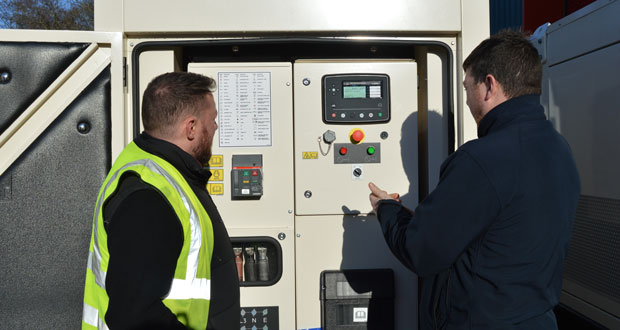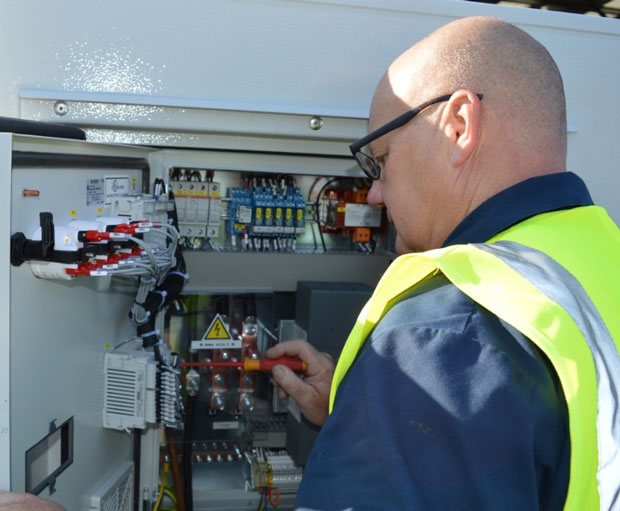By Billy Myers, Aftermarket Director at DTGen
Standby generators are used to supply power for the duration of a mains power outage. Such a break in power can have a serious effect on life as well as a huge financial impact on business, so the need for continuous power is becoming increasingly critical.
A well-maintained standby generator has a design life of more than 25 years and purchasing quality equipment that utilises the best design, quality materials and manufacturing precision will greatly influence the lifespan of your machine.
To achieve this design life, a planned preventative maintenance program (PPM) should be implemented, wherever possible utilising genuine OEM parts. PPM and service are typically conducted on a schedule which is based on time periods known as the maintenance cycle or actual running hours. This cycle should be adapted to meet each application requirements. Essentially if an engine operates for more than the standard hours, or in an extreme environment, it will need more servicing.
Annual maintenance will consist of a combination of major and minor visits and tests conducted by a manufacturer trained service engineer, covering all the main components. To ensure any generator is fully operational, tests conducted should include:
- Running the generator for five to ten minutes weekly, proving its ability to start in an emergency.
- Once a month, a mains failure simulation test, running the generator on the available site load for one hour. This proves the changeover arrangement is operational and the generator can support the site load.
- Should the site load be less 30%, it is recommended that on an annual basis, an artificial load bank is attached to run the generator at 100% to prevent excessive carbon build up.
A robust programme of servicing and preventative maintenance helps to safeguard the long service life of engines and alternators.
The control system plays a crucial role in maintaining and managing your generator. Whilst the technology behind alternators and engines changes little year on year, electronic components and electrical controls are continually evolving. This often means a perfectly viable engine and alternator risk becoming redundant due to outdated control technology and component obsolescence.
With constantly moving and improved technology, control manufacturers often cease making and supporting older versions of their products. In the event of failure, this makes sourcing replacement parts problematic and costly, creating periods of extended downtime, and putting your power continuity, and ultimately your business, at risk.
Additionally, older control systems present very little by way of the capability, usually because the technology was simply not available ten to 25 years ago. Any older system with an ageing or obsolete control system therefore increases the risk to your continuity of power.
A cost-effective way to extend the life of your generator and ensure continuity is to upgrade or refurbish your control system.
Modern control systems offer increased functionality, including remote monitoring options , and reduce the risk of failure or faults as they are more resilient than older models.
A new digital control system can provide anything from a simple local start to remotely controlled and managed synchronised sets. Generators with communications ports can have alarms monitored remotely, offer full system data visibility and management, all via a laptop or smartphone from anywhere in the world, offering complete system flexibility and enhanced capabilities.
Even with the best maintenance regimes, it is essential to keep your control system up to date and reliable. Don’t wait until you have a controls failure, take the initiative to ensure your system is up to date and ready to perform when you need it most to avoid major business interruption.
For more information visit www.dtgen.co.uk or email service@dtgen.co.uk
-ends-
To have your industry news published in the pages of FMJ’s news section, Month in FM, and here online on fmj.co.uk, please send your news and image to Danny Grange danny.grange@kpmmedia.co.uk
The view or information contained within these unedited press releases, are that of the company producing it and not necessary the views of kpm.






